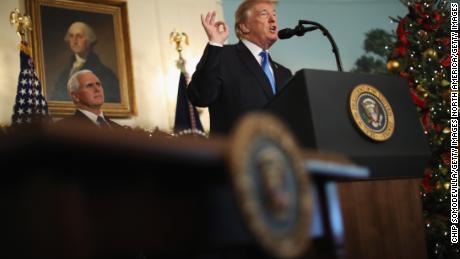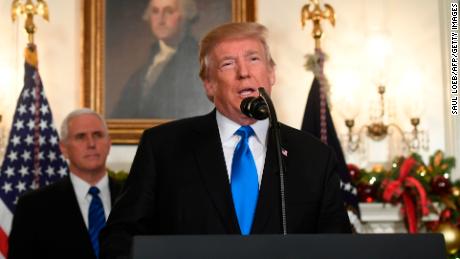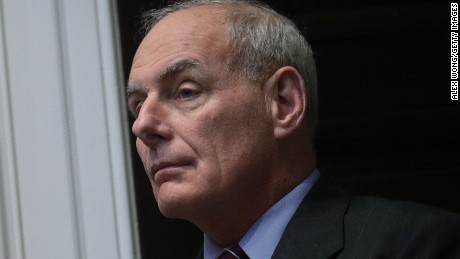Story highlights
- Trump made a campaign pledge to move the embassy
- Sources think he will try to soften the announcement for Palestinians
Washington (CNN)President Donald Trump is expected to announce as early as Tuesday that the US recognizes Jerusalem as Israel's capital, US officials with direct knowledge and foreign diplomats have told CNN.
Trump is expected to make the announcement as he signs a waiver to keep the US embassy in Tel Aviv for another six months but says his administration will move the diplomatic mission to Jerusalem at some point -- a goal long sought by Israel.
Sources believe that Trump will attempt to soften the announcement for Palestinians, possibly, as CNN reported Thursday, by specifying only West Jerusalem as the capital of Israel, as opposed to the eastern part of the city, which Palestinians want to claim as their own seat of government.
Sources caution nothing is certain until Trump makes the final decision.
"The President has always said it is a matter of when, not if. The President is still considering options and we have nothing to announce," said a White House spokesperson. Another White House source tells CNN no final decision has been made.
The announcement would put the US in singular company among its allies. While Israel claims Jerusalem as its seat of government, no foreign embassies are located there, as the international community sees it as an issue to be settled as part of a broader peace agreement.
Trump made a campaign pledge to move the embassy, a promise previous presidents have made and then backed away from when faced with the complexities of the situation and the strife it could cause.
The Jerusalem Embassy Act of 1995 requires the embassy to be moved to Jerusalem or face the financial penalty of losing half the State Department's appropriated funding for the acquisition and maintenance of buildings abroad.
Every six months, however, presidents can sign a waiver to avoid these penalties on national security grounds.





















